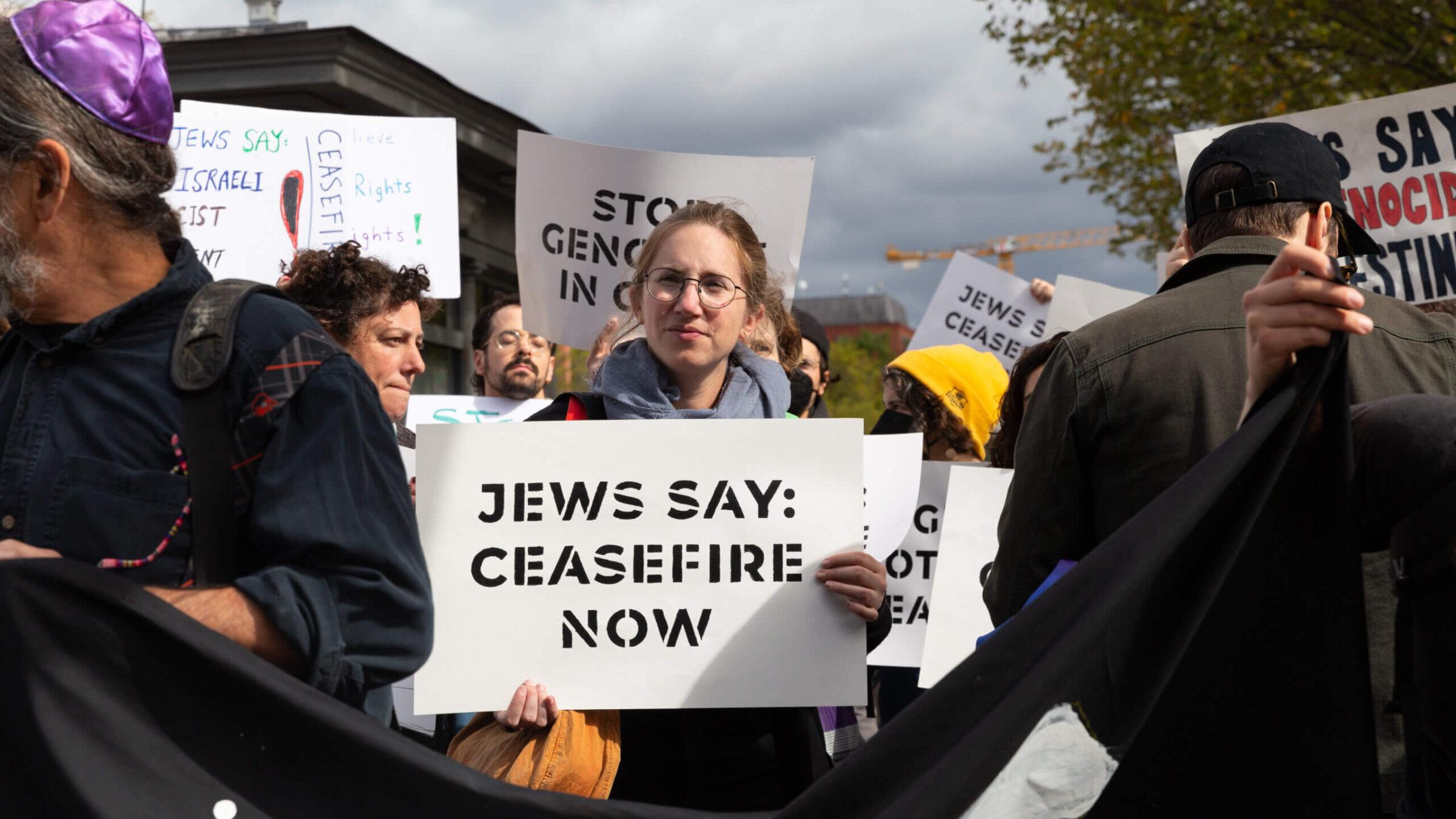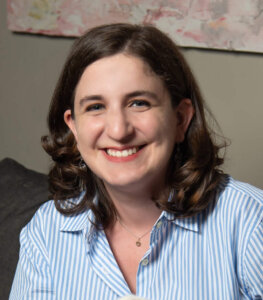Jews you disagree with are still Jews — even if they feel differently about Israel
Jewish activists calling for a cease-fire are getting accused of not being Jewish

More than 1,000 mostly Jewish demonstrators blocked entrances to the White House to protest Israeli violence in Gaza and call on President Joe Biden to press for an immediate ceasefire in the region, Oct. 16, 2023. Photo by Matthew Litman
The last two weeks — following Hamas’s horrific Oct. 7 attack and Israel’s subsequent bombing of Gaza — have been devastating. Jews in Israel and around the world are struggling and suffering. And so it has been both maddening and deeply painful to see that some Jews are choosing this moment to tell Jews with whom they disagree that they are not Jewish.
On Wednesday, Oct. 18, two Jewish groups — Jewish Voice for Peace, an anti-Zionist group, and IfNotNow, a self-described “movement of American Jews organizing our community to end U.S. support for Israel’s apartheid system” — led a protest on Capitol Hill to call for a cease-fire between Israel and Hamas.
There were a variety of responses to this protest, but most notable, to me, were from Jewish people and organizations who decided to say that the protesters were not Jewish. For some, this meant looking at the Jews clapping and singing in the rotunda and declaring that Jews don’t clap; declaring “these are not my people”; tweeting “kapo”; and sharing an image of a “performative tallis” Halloween costume.
According to others, those assembled constituted an aggressive Other. Jonathan Greenblatt, head of the Anti-Defamation League, tweeted, “Who in their right mind can watch Hamas terrorists commit atrocities, brutally murder civilians, kidnap children & elderly, & then protest Israel’s right to defend itself??? … These radical far-left groups don’t represent the Jewish community.”
As a journalist and as a Jew, I found this wave of responses to be upsetting, intellectually lazy and shortsighted. There are all sorts of things to say about Jews with whom you disagree that are based in fact, but that they are not Jewish is not one of them.
I covered a protest by JVP and IfNotNow earlier on Oct. 16 at the White House. I listened to the various speeches that were made there. A central message of the protest was, “our grief is not your weapon”; which makes the idea that those protesting were antisemites and/or not Jewish doubly offensive.
To say that those assembled were not really Jewish was thus to imply that the Jews who were there, some of whom were mourning the loss of loved ones, were faking their grief. That theirs wasn’t really Jewish grief. That they weren’t really connected to what was happening as Jews. It was the equivalent of watching someone in pain be told that they weren’t really hurting.
Beyond that, though, to say that the Jews protesting are not Jewish is not an argument. (I could say that to ignore disagreement and debate is to ignore a key part of Jewishness and Judaism, and that the Talmud is literally a long collection of arguments, but I do not accuse Jews of acting un-Jewishly.)
To be clear: There are arguments to be made against a cease-fire. One can make an argument on political terms (some cite polling that Israeli Jews themselves overwhelmingly support a militant response and do not believe they can or should continue to live next to a Gaza run by Hamas). One can make it on Jewish terms (pointing to parts of Jewish law that say that the people of Israel must fight their enemies). A vigorous discussion about something as consequential as a ground invasion of Gaza is both natural, and appropriate. Alternatively, one can decide to be honest about the fact that one does wish to talk about a cease-fire at all.
But to claim unilaterally that the person who disagrees with you does not count, and so does not have a place in the conversation, is to pretend to win a debate by preventing the opposing side from coming to the lectern.
I, for example, think that Israeli Economy Minister Nir Barkat’s declaration that hostages and civilian casualties are secondary demonstrates a callous disregard, not only toward the inherent dignity of all human life, but also of his government’s responsibility toward the civilians, whom he and the rest of the government have thus far failed.
The point is not that he has no legitimacy, but that he made a statement that I think is cruel and wrong. His remarks fly in the face of all that I, personally, hold dear about Judaism and Jewishness, but it would never occur to me to say that he’s not really Jewish.
Further, to say or imply that calling for a cease-fire is necessarily motivated by antisemitic hatred is to strip “antisemitism” of its meaning. Are there some people who want a cease-fire because they hate Jews and don’t see Hamas’ victims as innocent civilians? I have no doubt. But there were many other arguments against a cease-fire that activists from JVP and INN raised at the protest at the White House: that they did not believe war could bring peace; that they did not think Hamas’ killing of children justified Israeli killing of children; that bombing Gaza does not ultimately bring about safety for Israelis or Palestinians.
If that advocacy is antisemitism, we will need another word to describe prejudice against Jews.
We often read and hear and are told that Jews are a people and a nation. That we are a family. And that quality — that peoplehood, that familial connection — is part of why we are impacted by and connected to not only the atrocity carried out by Hamas in Israel, but the attack on a synagogue in Tunisia, and the targeting of one in Berlin.
But the truth is that one does not need to like everyone in one’s family. One does not even need to interact or engage with everyone in one’s family. Family can be estranged, it can be disinherited, it can be torn apart. And yet family remains family, stuck together.
I would like to think, at a time of trauma, stress, sadness and uncertainty for many Jews, that we would not turn around and call one another not Jewish. Historically, however, this has rarely been the case.
And so, failing that, I would hope that everyone realizes that merely declaring someone is not Jewish does not make it so. Accusing them of not being invested, arguing that they’re not a part of, and so do not have a claim to, Jewishness or cannot speak as a Jew — all this rhetoric does is harm Jews. It also undermines the concept of Jewish peoplehood and connectivity. And this is, I would argue, an inopportune moment for that.
To contact the author, email [email protected].

















